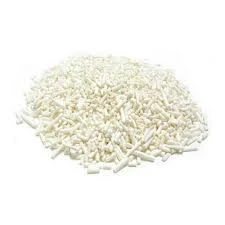
E551 Anticaking Agent Applications and Benefits in Food Industry
Understanding E551 The Anticaking Agent
In the realm of food additives, one component that often raises questions is E551, commonly known as silicon dioxide. This anticaking agent plays a pivotal role in maintaining the quality and consistency of various powdered food products. In this article, we will explore the nature of E551, its functions, safety, and its applications in the food industry.
What is E551?
E551 is a food additive derived from silica, a naturally occurring mineral found in sand and quartz. It is recognized by several names, including silicon dioxide, and is classified as a GRAS (Generally Recognized As Safe) substance by various regulatory bodies. It appears as a fine, white powder and serves primarily to prevent the clumping of powdered substances.
Functions of E551
The primary function of E551 is to act as an anticaking agent. When food products are stored for extended periods, moisture can lead to clumping, making them difficult to use. E551 absorbs moisture and promotes free-flowing properties in powders such as salt, spices, and powdered soups. By inhibiting moisture absorption, E551 ensures that these products maintain their texture and usability, which is crucial for both consumers and manufacturers.
In addition to its anticaking properties, E551 can enhance the overall quality of food products. For instance, it helps maintain the homogeneity of mixtures and improves the appearance of powdered foods by ensuring they remain pourable and visually appealing. As a result, E551 is commonly used in a variety of food products, including table salt, baking powder, powdered sugar, and powdered drink mixes.
Safety and Regulation
e551 anticaking agent

The safety of E551 has been extensively studied, and it is deemed safe for consumption within established limits. Regulatory authorities, including the European Food Safety Authority (EFSA) and the U.S. Food and Drug Administration (FDA), evaluate food additives, and E551 has passed comprehensive assessments of its safety. While it is essential to consume food additives in moderation, E551 is not associated with any significant health risks when consumed within the recommended limits.
Concerns often arise regarding the potential for inhalation exposure to fine silica powders, particularly in industrial settings. However, when used in food products, E551 is typically in a non-volatile form, which minimizes the risk of inhalation. Consumers are generally not exposed to hazardous levels of E551 in their diets.
Applications in the Food Industry
E551's versatility makes it a staple in the food industry. It is utilized in various sectors, from baking to seasoning to beverage production. For example, in baking powder, E551 ensures the even distribution of leavening agents, resulting in a consistent texture in baked goods. When used in salt, it prevents clumping and allows consumers to pour it easily.
In the realm of pharmaceuticals and supplements, E551 is also prevalent. It ensures that powdered medications remain free-flowing, allowing for accurate dosing and improved shelf life. The cosmetic and personal care industries have similarly embraced E551, using it in products like powders and foundation to enhance texture and application.
Conclusion
E551, or silicon dioxide, is a valuable anticaking agent widely used in the food industry. Its primary function is to prevent clumping in powdered products, ensuring a smooth and free-flowing consistency. Supported by extensive safety assessments, E551 is considered safe for consumption, making it a reliable choice for manufacturers aiming to maintain the quality and appeal of their products. With its diverse applications, E551 continues to play a crucial role in the production and preservation of various food items, enhancing the overall consumer experience. As consumers, understanding the purpose and safety of food additives like E551 allows us to make informed choices about the products we consume.
-
The Safety Challenges of Ammonium Nitrate FertilizerNewsJun.26,2025
-
The Critical Role of Mining ChemicalsNewsJun.26,2025
-
Shelf Life of Glacial Acetic Acid Food GradeNewsJun.26,2025
-
Enhancing PVC Longevity with 1,2,3-Benzotriazole InnovationsNewsJun.26,2025
-
China’s Dominance in Food Additive ProductionNewsJun.26,2025
-
Can Aluminum Hydroxide Replace More Toxic Alternatives?NewsJun.26,2025
-
PE and PP Plastics with Benzotriazole AdditivesNewsJun.12,2025
Hebei Tenger Chemical Technology Co., Ltd. focuses on the chemical industry and is committed to the export service of chemical raw materials.
-

view more DiethanolisopropanolamineIn the ever-growing field of chemical solutions, diethanolisopropanolamine (DEIPA) stands out as a versatile and important compound. Due to its unique chemical structure and properties, DEIPA is of interest to various industries including construction, personal care, and agriculture. -

view more TriisopropanolamineTriisopropanolamine (TIPA) alkanol amine substance, is a kind of alcohol amine compound with amino and alcohol hydroxyl, and because of its molecules contains both amino and hydroxyl. -

view more Tetramethyl Thiuram DisulfideTetramethyl thiuram disulfide, also known as TMTD, is a white to light-yellow powder with a distinct sulfur-like odor. It is soluble in organic solvents such as benzene, acetone, and ethyl acetate, making it highly versatile for use in different formulations. TMTD is known for its excellent vulcanization acceleration properties, which makes it a key ingredient in the production of rubber products. Additionally, it acts as an effective fungicide and bactericide, making it valuable in agricultural applications. Its high purity and stability ensure consistent performance, making it a preferred choice for manufacturers across various industries.











